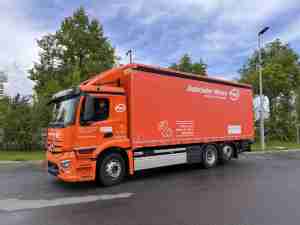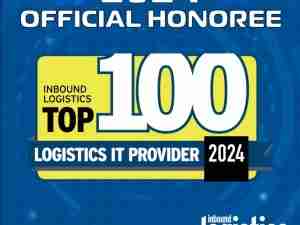WATERLOO, Ontario - Descartes Systems Group, the global leader in uniting logistics-intensive businesses in commerce, announced that it has integrated Kharon’s sanctions ownership data with its denied party screening solutions to help organizations ensure they are not conducting business with entities that are majority-owned by individuals or companies under the Department of the Treasury’s Office of Foreign Assets Control (OFAC) regulations.
Also known as the 50 Percent Rule, the requirement is aimed at reducing the risk of sanctions evasion, terrorist financing, money laundering and other illicit finance threats by prohibiting or restricting transactions with entities that are owned 50 percent or more by a single prohibited person, or by a combination of prohibited persons equal to 50 percent or more—regardless of whether such entities appear on OFAC’s Specially Designated Nationals and Blocked Persons List (SDN List), Sectoral Sanctions Identifications List (SSI List) or the annex to an Executive order.
“Compliance with the 50 percent rule, along with beneficial ownership requirements, are coming under greater scrutiny; however, the challenge for everyone is that these names are not published on any government list and bad actors are constantly trying to evade sanctions by moving assets to remain undetected,” said Sophia Nisha, Senior Director, Denied Party Screening Solutions at Descartes. “Kharon has industry-leading expertise in this type of sanctions-related analytics and intelligence. Adding its data to our solutions helps companies in any industry identify beneficial owners impacted by sanctions, track changes of ownership, and continuously screen individual names to conduct meaningful due diligence and comply with OFAC requirements.”
Descartes’ solutions already provide companies with the ability to easily and efficiently screen against a comprehensive database of people, organizations and countries on official lists maintained by government agencies and international organizations regulating global trade. Now, with broadened solution capabilities, companies can enhance screening of entities owned by individuals or companies whose property and interest in property are blocked. Customers can tailor screening processes to fit their unique risk parameters, flag potential compliance issues for resolution, and integrate denied party screening with other global trade management (GTM) and enterprise resource management (ERP) systems.
“It is critical to know your customers and other commercial partners, and expanding Descartes’ capabilities with Kharon helps organizations ensure they are not transacting business with individuals or entities that need to be blocked or are subject to restrictions, but may not be listed on OFAC’s SDN List or SSI List,” said Ken Wood, EVP Product Management at Descartes. “Sourcing and maintaining denied party data is a significant challenge given how quickly and frequently the sanctions landscape changes worldwide, and we’re focused on providing customers with the technology they need to lower the risk of penalties for non-compliance, which can include fines, revocation of export privileges and criminal charges.”









